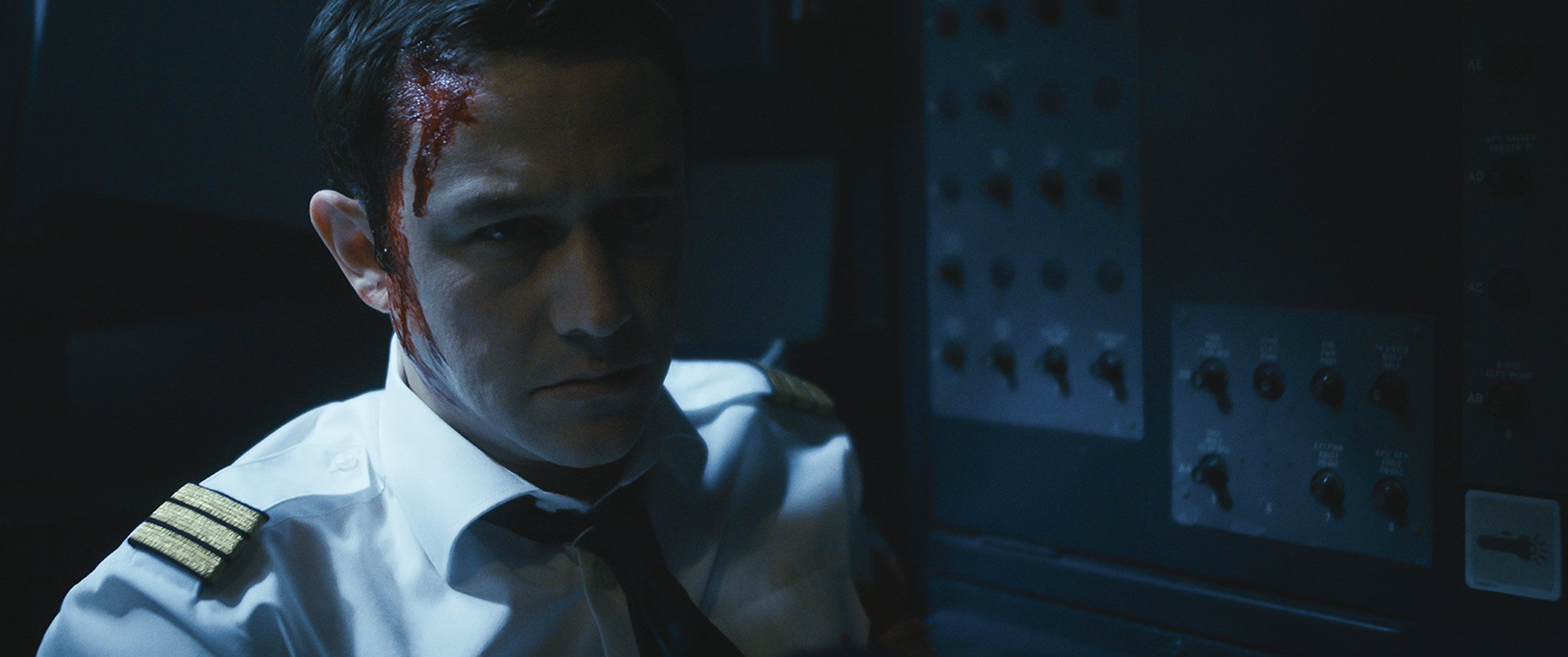What to Watch Verdict
It's an intimate hour and half with one great known actor, a decent performance by another, but overall a feeling of "Hunh. That happened. I watched it."
Pros
- +
Wonderfully acted.
- +
The pacing keeps things moving.
Cons
- -
Those darn Islamist terrorists are at it again.
- -
A 20-minute divert to Hanover takes way longer.
7500 is not an easy watch for someone who prefers to not feel uneasy around airplanes. That, of course, is the point of a thriller. To keep you on the edge of your seat, as they say. To hit you with something when you least expect it.
But those sorts of thriller cliches aren't what make 7500 almost uncomfortable. It's that you know you something is going to happen. You know the Airbus is going to be hijacked — you just don't know when. You know that first officer Tobias Ellis (the always incredible Joseph Gordon-Levitt) is going to "forge a surprising connection with one of the hijackers." (He doesn't, really, but more on that in a minute.)
What makes 7500 so uncomfortable to watch is the intimacy in the way in which it was shot. By design and necessity, nearly all of the action takes place in the airplane's cockpit — not exactly the most spacious set. And the camera angles are often either directly in the actors' faces, or over their shoulders.
It's a hard watch, indeed. But also hard to look away.
There's nothing particularly exciting about the flight from Berlin to Paris. It's one I've made maybe a half-dozen times, and the most remarkable thing about it is how unremarkable it is. On a clear day you see the countryside and the Western European towns that look far more quaint and historic than American suburbs.
But otherwise, that's it.
7500 — the movie — gets its title from the squawk code 7500. That's the transponder number a flight crew would set that indicates "an aircraft subject to unlawful interference."
The latest updates, reviews and unmissable series to watch and more!
A hijacking.
So we know before the first frame hits the screen that something's going to go badly wrong. That's almost unthinkable these days, but here we are.
JGL's Tobias is an American working for a European airline. That's not entirely unheard of, I suppose, and it neatly saves us from being subject to a strained accent for the entire movie.
The movie opens with security footage from an unnamed Berlin airport. (There's a joke here about which one it's not that's only funny to those of us who have been waiting for Brandenburg Airport to open ... forever ... and have been suffering in silence at Tegel in the meantime.)
It's reminiscent of the footage of the 9/11 hijackers making their way through Boston's Logan Airport, which is exactly the point. While we don't quite know who we should be looking for, the Middle Eastern features of at least one man definitely stand out a little, and the scene freezes on him before we follow him through security, complete with a pat-down.
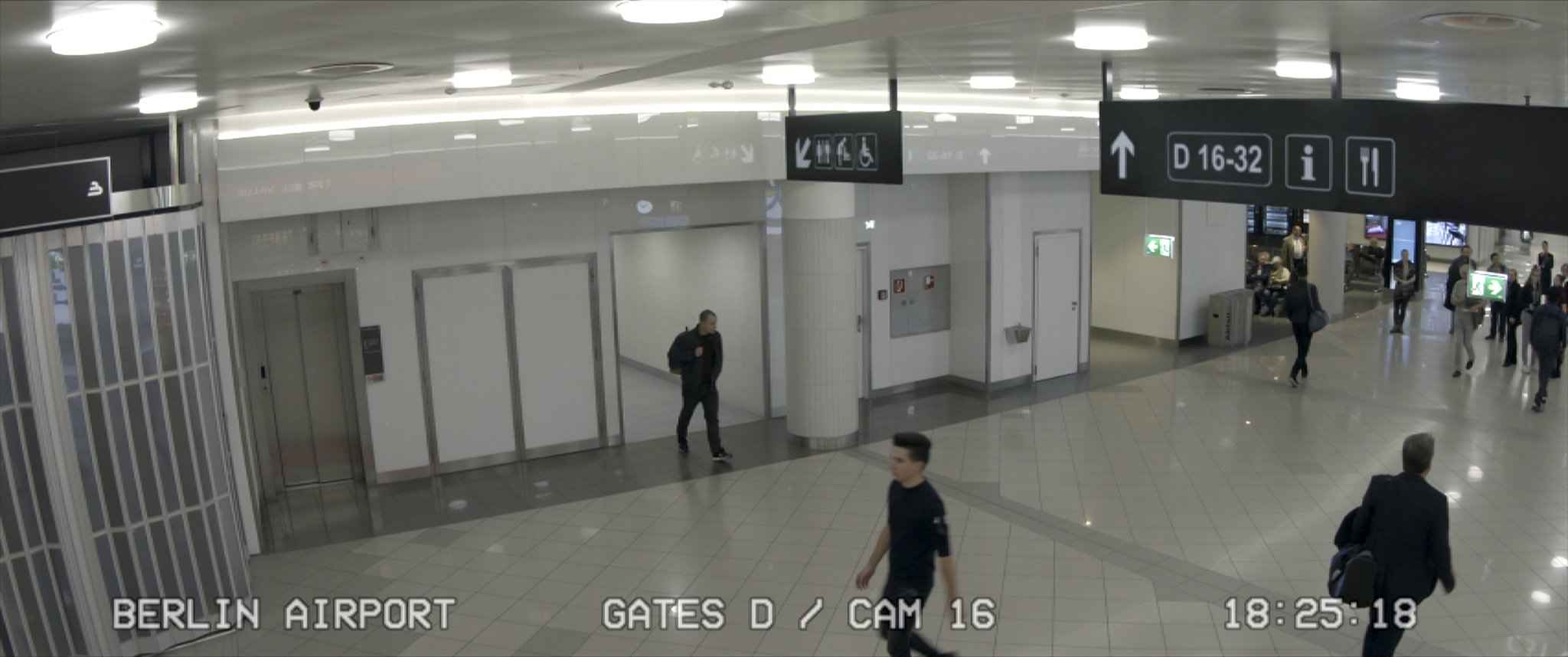
The first three minutes of "7500" are silent, with the hijackers seen only through airport security footage.
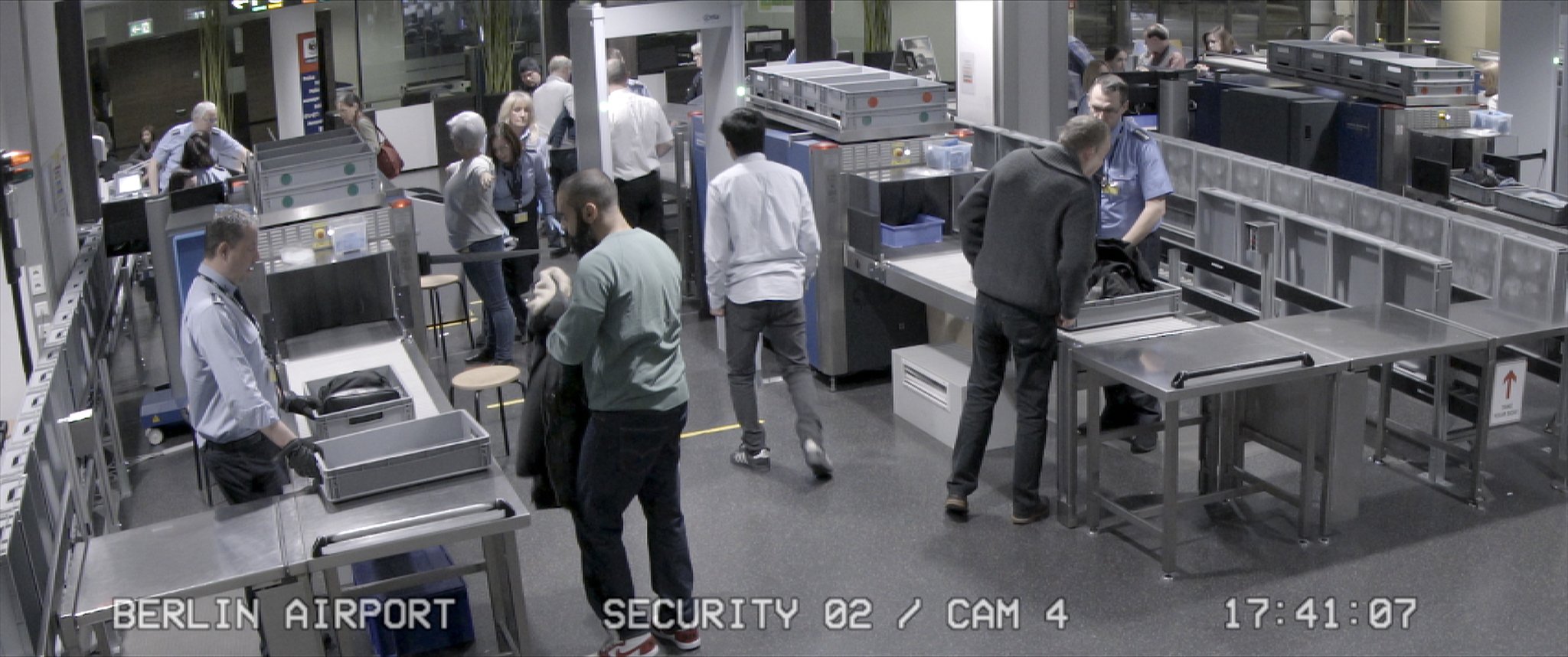
The first three minutes of "7500" are silent, with the hijackers seen only through airport security footage.
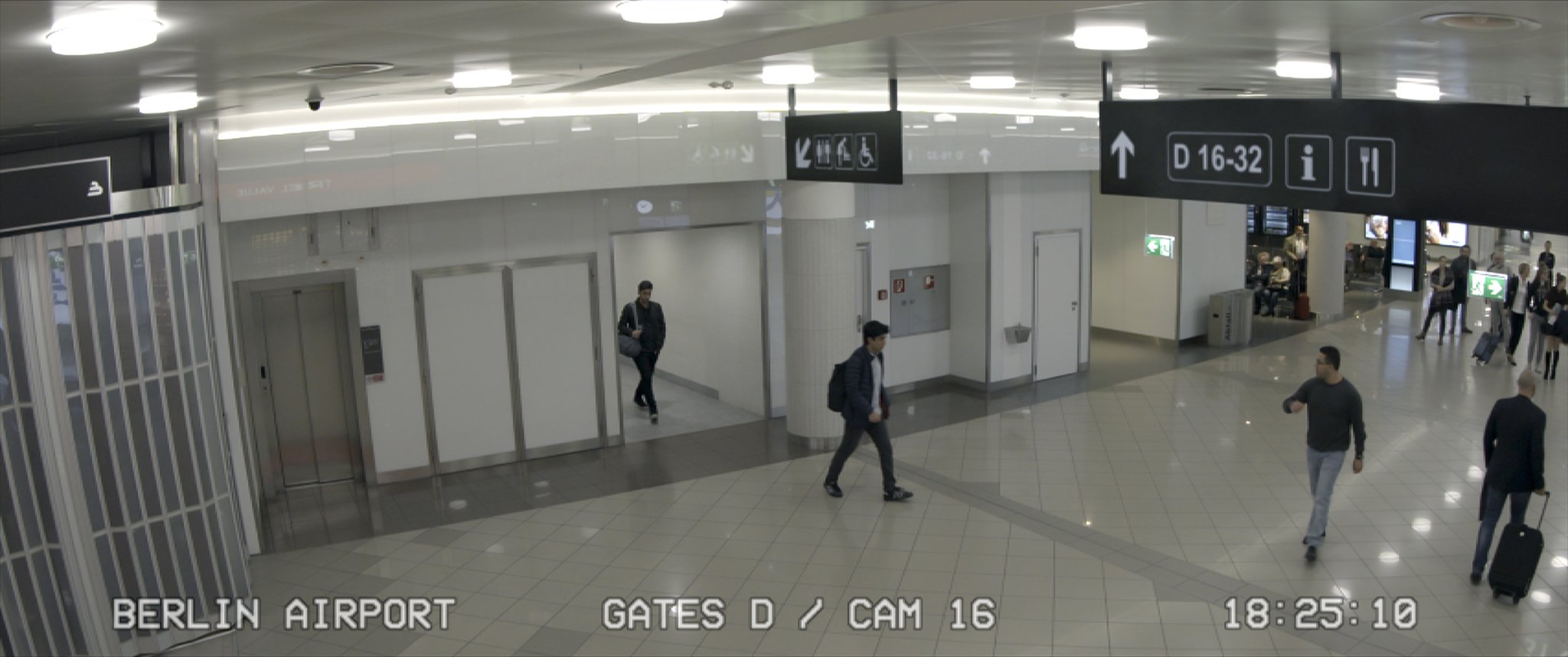
The first three minutes of "7500" are silent, with the hijackers seen only through airport security footage.
We see him purchase three bottles of liquor in a duty-free store, then head into the restroom where he presumably meets up with his conspirators. It's a bit of a slow opening, exacerbated by the low hum of an airplane's interior as the only sound. (European airports, by the way, are notoriously more quiet than U.S. airports. And once you experience that you'll never want to return to the sound of CNN and extraneous PA announcements ever again.)
This section is simple, but effective. These are the players, and they're prepped for something — presumably with the bottles. (Having never purchased anything duty-free, I can't speak to the efficacy of the plot, but it seems sound enough.)
Some 3 minutes later we find ourselves on the airplane with a beautiful static shot of a dark flight deck. We meet Tobias as he and Capt. Michael Lutzmann are their way onto the aircraft, along with the flight attendants. The camera lingers on one a little too long as she's taking off her jacket. She's important to someone, apparently.
The captain and first officer settle in, then Michael heads back outside to continue the pre-flight routine. That gives flight attendant Gökce a chance to duck onto the flight deck to talk domestic problems with her boyfriend — and father of their 2-year-old boy — Tobias.
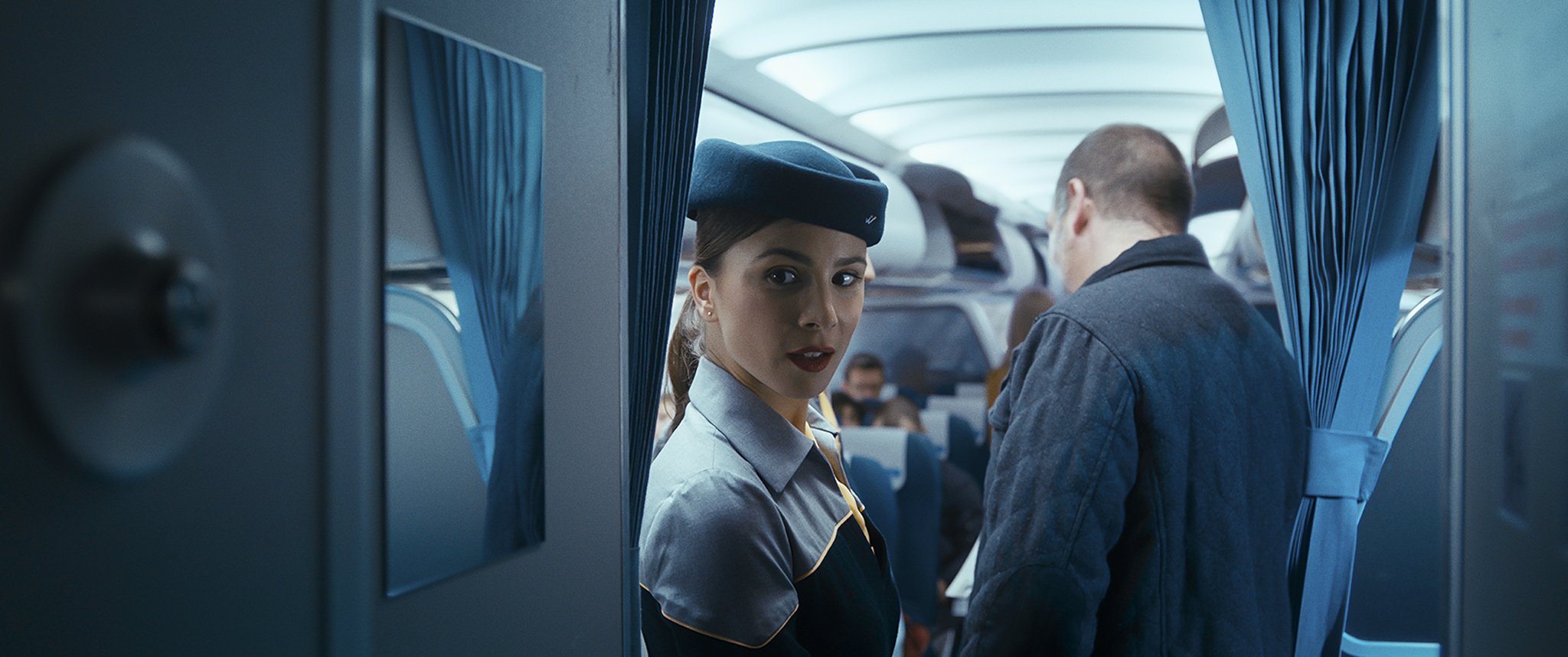
"You guys seem to know each other," Michael remarks as he re-enters the flight deck. Tobias and Gökce can't hide things that well. What are the odds of a couple ending up working together on a random night in Berlin? Probably not great. But on the other hand maybe it's more likely given the number of airlines you find in the part of the world. (Far more than we're used to in the United States, anyway.)
There's a little bit of a thing where a couple passengers can't be found, and they debate whether to pull their luggage and go, or potentially wait for the passengers. Both could cause a delay, though you're not allowed to fly anymore if a ticketed passenger's luggage is loaded but the passenger doesn't actually get on the plane. The passengers show quickly enough, however (don't worry about the fact that they're on the tarmac — it's not uncommon to board that way in Berlin), and everybody gets ready to go.
When training and emotion meet with certain death, one or the other will have to lose.
Takeoff is routine — the only thing that doesn't make much sense so far is the pilots putting in a meal request on a flight that takes less than 2 hours. But, again, plot. It's always fun to see a takeoff from the flight deck — even if you know it's not real — and the movie illustrates this decently enough. You do the work, and you're in the air.
The only real tension at this point comes from a monitor behind the pilots that shows what's going on just outside the flight deck door. No sound, just a wide-angle, grayscale view to show obvious threats.
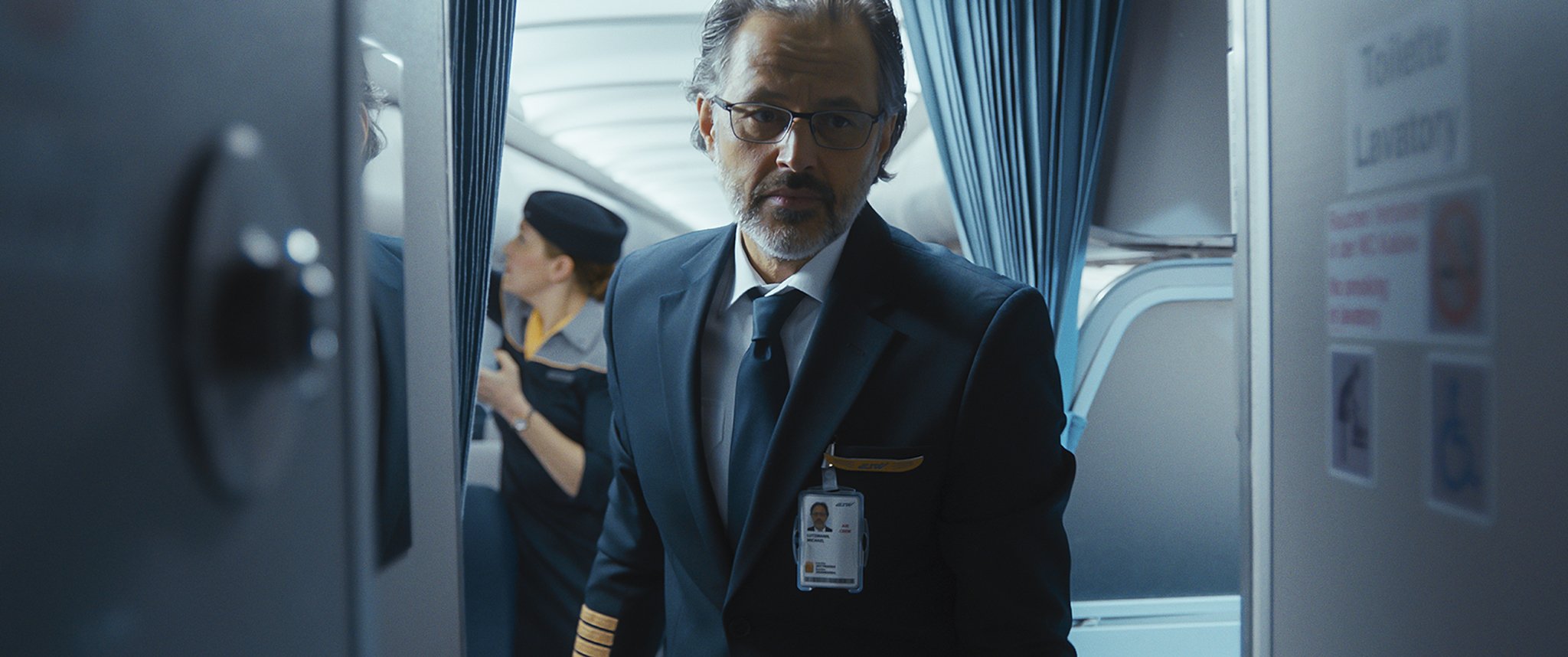
We only have to sit through a few more minutes of screen time before all hell breaks loose. A flight attendant enters a code to request access to the flight deck, and the captain unlocks the door. "Surprise," she says, bringing the water and sandwich that is not at all a surprise to the men who ordered them.
The surprise comes in the form of a hijacker who somehow could see through the closed gallery curtain to know that it was the right time to storm the flight deck. The other hijackers — all armed with shards of the liquor bottles wrapped in duct tape — work to control the cabin.
The flight deck fight — Fight Deck! (whose first and second rules are that you don't talk about Fight Deck) — is intense. Tobias' left arm is injured to the point that it doesn't really work anymore. Michael is stabbed multiple times and is is out of action and almost certainly in serious trouble. But Tobias manages to close the flight deck door — remember, these things have been reinforced since 9/11 — and knock out the sole hijacker inside using a small fire extinguisher. Tobias steadies the plane, then secures the hijacker — we learn his name is Kenan — with duct tape. (Good for both sides of a hostage situation!)
It's worth reiterating the No. 1 rule here, which Tobias himself repeats in discussions with the hijackers in the cabin. You do not open the flight deck door in an emergency like this. It's the singular most important change in security since 9/11. Keep the door shut and what's left of the bad guys on the other side — the sound of them continuously trying to break in is even more ominous than the sound of the airplane itself — and then you land the plane. Nearest airport? Hanover, 20 minutes away.
That's a lot of time for things to get worse. There's one unconscious hijacker — Kenan — on the flight deck. At least two others — Daniel and Verdat — in the cabin, and they want in. The pounding continues. And the threats begin.
First to die is a passenger. But Tobias knows the rule. You do not open the flight deck door, and you get the plane on the ground. Twenty minutes to Hanover.
The problem is the 20 minutes to Hanover stretches into something closer to 40 minutes in movie time. And that gives plenty of time for the hijacker to decide to use a flight attendant as leverage. And of course he picks Gökce — Tobias' girlfriend and mother of their 2-year-old boy.
Tobias watches it all from the security monitor.
Tobias threatens to kill the hijacker he has bound behind him. "Tell him to go ahead," Daniel yells on the other side of the door. "Something else is waiting for us. I'm not afraid to die. Do you think you can threaten me?"
Tobias gets on the PA and implores the passengers to rush the front of the plane and save Gökce. We hear something going on back in the cabin but can't see through the gallery curtain — which, again, the hijackers managed to somehow see through to kick this whole thing off. It's just Tobias on the phone with the young Verdat.
Verdat actually sounds like he doesn't want to kill everybody, and Tobias tries to tell him that he's better than that. Verdat tells his college Gökce is a Muslim, like them. Daniel doesn't care. He has to get into the flight deck.
Tobias warns the passengers to put on their seatbelts, kills the autopilot, and rolls the plane to knock everyone off balance. But the hijacker Daniel is just too strong for Gökce. And even when Tobias agrees to open the door, Daniel doesn't believe him. And Gökce tells Tobias to not open the door, and to take care of their child.
She knows how this ends, and Daniel slices her throat.
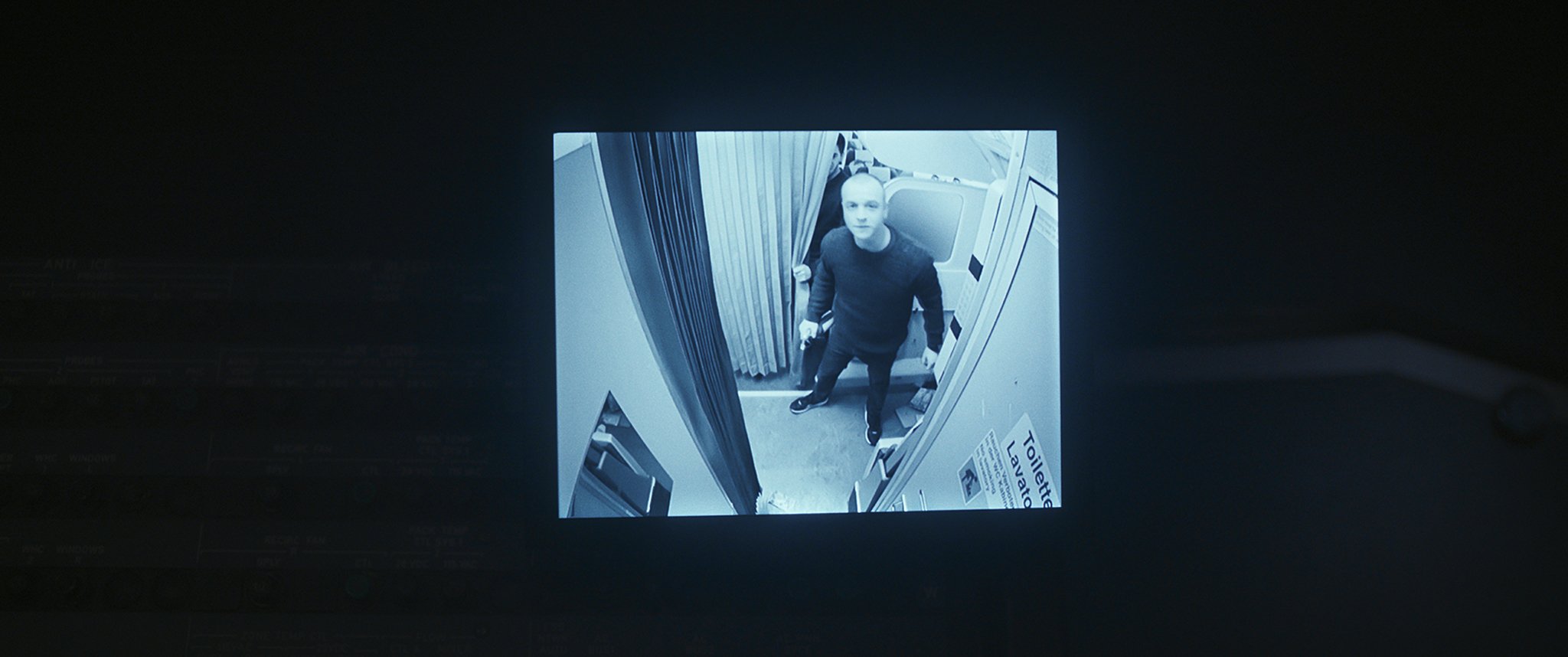
It's worth noting at this point that we don't actually know what the hijackers want. There are "only" 80-something people on the plane, and a limited amount of fuel. It's a short flight. They'll have to land somewhere.
The pounding on the door continues.
That's when the unconscious hijacker Kenan (shown as Kinan in the subtitles) slips out of the jump seat and overpowers Tobias. He opens the door and lets Verdat inside — and just in time, because the passengers have finally overpowered Daniel.
"I am in control," Kenan says over the radio in German. "Both your pilots are dead, so you can give up all hope.
"This isn't a hijacking. This plane is about to crash. We're ready to die and there's nothing you can do. .. Today, we're avenging the deaths of our brothers and sisters."
Somebody forgot to tell Verdat about that plan, though. He's not ready to die.
That brings us back to that "surprising connection with one of the hijackers" the movie's description tells us about. There's not actually anything surprising about a young hijacker being unprepared for martyrdom. Or about Tobias trying to talk Verdat out of killing anyone. Or about Verdat not letting Kenan crash the plane. That's exactly what you'd expect from any of them.
You do have to ask yourself what you'd do if you saw the mother your child threatened with death on the other side of a security monitor. Would you open the door — knowing it could well cause her death anyway, along with dozens of others, if not more?
Or would you do what you were trained to do — aviate, navigate, communicate. Get the plane on the ground at all costs. So long as what's on the other side of the door stays on the other side of the door, you have a job to do,
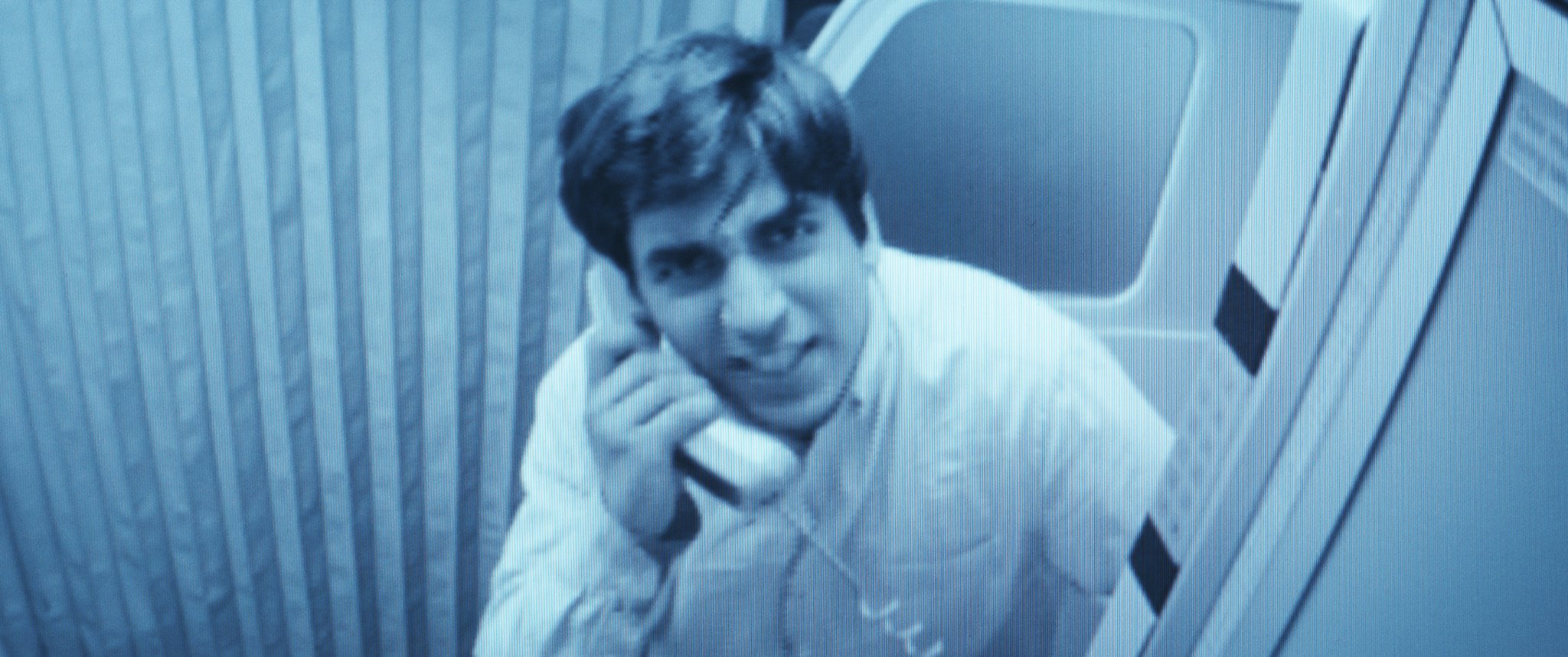
Tobias forgot that, even if it was only for minute — and even if it ultimately wasn't him who opened the door. It's hard to blame him. What would you do in that situation? But pilots are rational beings. They follow procedure and make quick decisions and don't let emotion dictate outcomes.
Joseph Gordon-Levitt does a decent job taking us through all of those things. He's maybe not as robotic as a pilot as you would expect. But this is a movie, after all, and not real life. (There are countless videos of real-life commercial flying on YouTube, and none of it will win any Oscars.)
And when you consider the scope of how this movie is presented — nearly entirely from the dark, confined flight deck — it's impressive to think about how difficult that must have been for all the actors. It's almost like a small play, and at times a one-man act. All while the camera is practically touching their face.
It's hard to get much closer to someone than that. And that is ultimately what gives 7500 its power.
